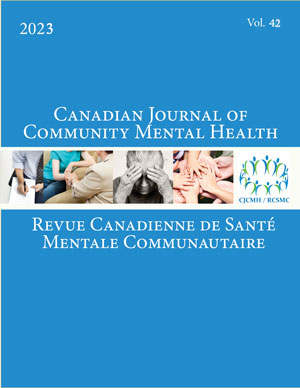Exploring Elements of Workplace Social Capital that Impact the Accommodation Negotiation Process: A Qualitative Descriptive Study
Abstract
Résumé
Formats available
You can view the full content in the following formats:
References
Information & Authors
Information
Published In

History
Key Words
Mots-clés
Authors
Metrics & Citations
Metrics
Other Metrics
Citations
Cite As
Export Citations
If you have the appropriate software installed, you can download article citation data to the citation manager of your choice. Simply select your manager software from the list below and click Download.
There are no citations for this item
View Options
View options
Login options
Check if you access through your login credentials or your institution to get full access on this article.
Subscribe
Click on the button below to subscribe to Canadian Journal of Community Mental Health


